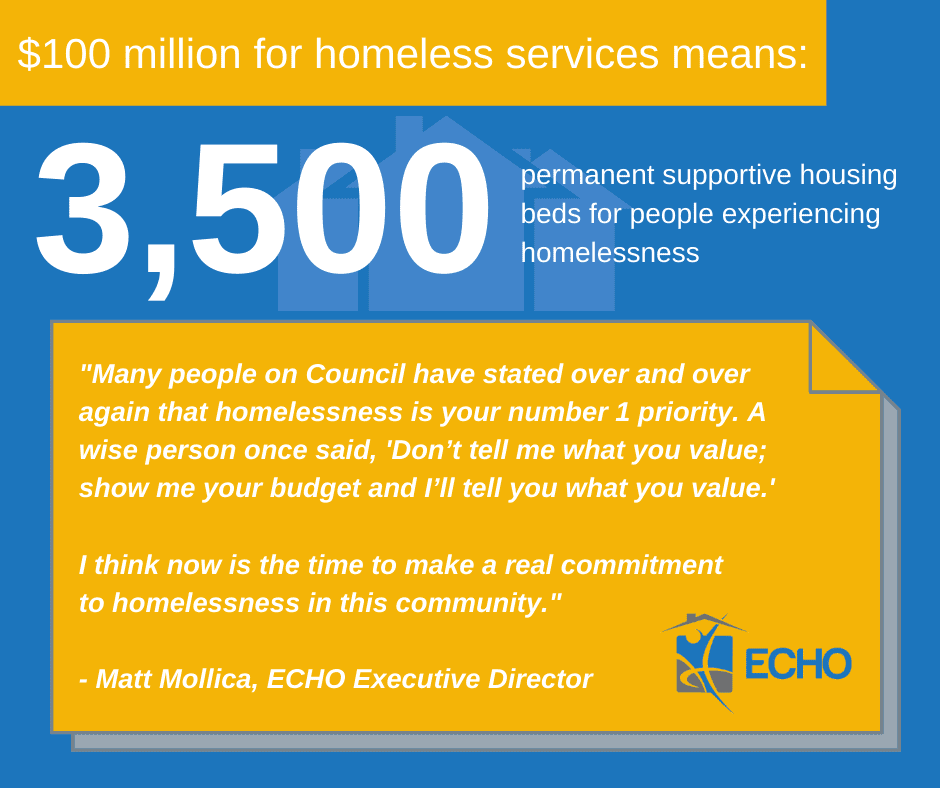$100 million would mean housing and services for 3,500 people
AUSTIN, Texas (June 12, 2020) — The Ending Community Homelessness Coalition (ECHO) joins the chorus of voices calling for decision-makers in Austin to prioritize housing and healthcare over policing by reallocating $100 million from the Austin Police Department to social services during forthcoming budget discussions.
Moving $100 million into Austin’s homeless service system would mean 3,500 people experiencing homelessness would have access to Permanent Supportive Housing (PSH) beds and wraparound services, ECHO Executive Director Matt Mollica told Austin City Council members Thursday.
“Many people on Council have stated over and over again that homelessness is your number 1 priority. A wise person once said, ‘Don’t tell me what you value; show me your budget and I’ll tell you what you value,'” Mollica said. “I think now is the time to make a real commitment to homelessness in this community.”
ECHO applauds the commitment and leadership from Council Member Natasha Harper-Madison, the only Black member of council, to push forward needed reforms to address racial inequities during these difficult times. ECHO commends Mayor Adler and Council for taking positive steps Thursday to make policing and housing more just and equitable, but there is still work to do to ensure every member of our community has access to basic human needs, including housing and healthcare.
An additional $100 million for Permanent Supportive Housing would include:
- Housing and rental assistance
- Mental health services
- Harm reduction services
- Employment services
- Healthcare services
- Additional community-based supports
Permanent Supportive Housing is a long-term and effective solution to ending homelessness for our most vulnerable community members. PSH provides permanent housing and access to optional supportive services that address the root causes of homelessness. Studies show permanent housing, provided with a Housing First strategy, are very effective in ending a person’s homelessness and preventing them from returning to the street.


